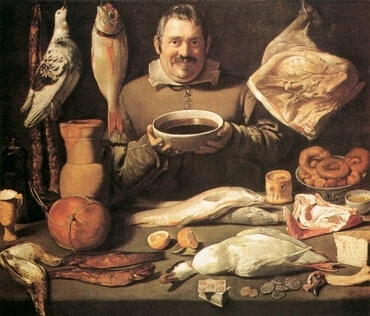1
Und Joseph wurde nach Ägypten hinabgeführt; und Potiphar, ein Kämmerer des Pharao, der Oberste der Leibwache, ein ägyptischer Mann, kaufte ihn aus der Hand der Ismaeliter, die ihn dorthin hinabgeführt hatten.
2
Und Jehova war mit Joseph, und er war ein Mann, dem alles gelang; und er war im Hause seines Herrn, des Ägypters.
3
Und sein Herr sah, daß Jehova mit ihm war und daß Jehova alles, was er tat, in seiner Hand gelingen ließ.
4
Und Joseph fand Gnade in seinen Augen und diente ihm; und er bestellte ihn über sein Haus, und alles, was er hatte, gab er in seine Hand.
5
Und es geschah, seitdem er ihn über sein Haus bestellt und über alles, was er hatte, daß Jehova das Haus des Ägypters segnete um Josephs willen; und der Segen Jehovas war auf allem, was er hatte, im Hause und auf dem Felde.
6
Und er überließ alles, was er hatte, der Hand Josephs und kümmerte sich um gar nichts bei ihm, außer um das Brot, das er aß. Und Joseph war schön von Gestalt und schön von Angesicht.
7
Und es geschah nach diesen Dingen, da warf das Weib seines Herrn ihre Augen auf Joseph und sprach: Liege bei mir!
8
Er aber weigerte sich und sprach zu dem Weibe seines Herrn: Siehe, mein Herr kümmert sich um nichts bei mir im Hause; und alles, was er hat, hat er in meine Hand gegeben.
9
Niemand ist größer in diesem Hause als ich, und er hat mir gar nichts vorenthalten als nur dich, indem du sein Weib bist; und wie sollte ich dieses große Übel tun und wider Gott sündigen?
10
Und es geschah, als sie Joseph Tag für Tag ansprach und er nicht auf sie hörte, bei ihr zu liegen, bei ihr zu sein,
11
da geschah es an einem solchen Tage, daß er ins Haus ging, um sein Geschäft zu besorgen, und kein Mensch von den Leuten des Hauses war daselbst im Hause;
12
und sie ergriff ihn bei seinem Kleide und sprach: Liege bei mir! Er aber ließ sein Kleid in ihrer Hand und floh und lief hinaus.
13
Und es geschah, als sie sah, daß er sein Kleid in ihrer Hand gelassen hatte und hinausgeflohen war,
14
da rief sie den Leuten ihres Hauses und sprach zu ihnen und sagte: Sehet, er hat uns einen hebräischen Mann hergebracht, um Spott mit uns zu treiben. Er ist zu mir gekommen, um bei mir zu liegen, und ich habe mit lauter Stimme gerufen.
15
Und es geschah, als er hörte, daß ich meine Stimme erhob und rief, da ließ er sein Kleid neben mir und floh und ging hinaus.
16
Und sie legte sein Kleid neben sich, bis sein Herr nach Hause kam.
17
Und sie redete zu ihm nach diesen Worten und sprach: Der hebräische Knecht, den du uns hergebracht hast, ist zu mir gekommen, um Spott mit mir zu treiben;
18
und es geschah, als ich meine Stimme erhob und rief, da ließ er sein Kleid neben mir und floh hinaus.
19
Und es geschah, als sein Herr die Worte seines Weibes hörte, die sie zu ihm redete, indem sie sprach: Nach diesen Worten hat mir dein Knecht getan, da entbrannte sein Zorn.
20
Und Josephs Herr nahm ihn und legte ihn in die Feste, an den Ort, wo die Gefangenen des Königs gefangen lagen; und er war daselbst in der Feste.
21
Und Jehova war mit Joseph und wandte ihm Güte zu und gab ihm Gnade in den Augen des Obersten der Feste.
22
Und der Oberste der Feste übergab alle Gefangenen, die in der Feste waren, der Hand Josephs; und alles, was daselbst zu tun war, das tat er.
23
Der Oberste der Feste sah nicht nach dem Geringsten, das unter seiner Hand war, weil Jehova mit ihm war; und was er tat, ließ Jehova gelingen.







